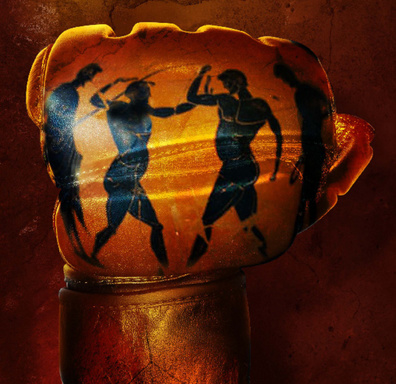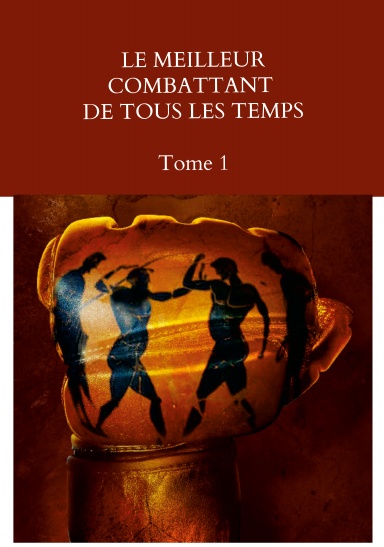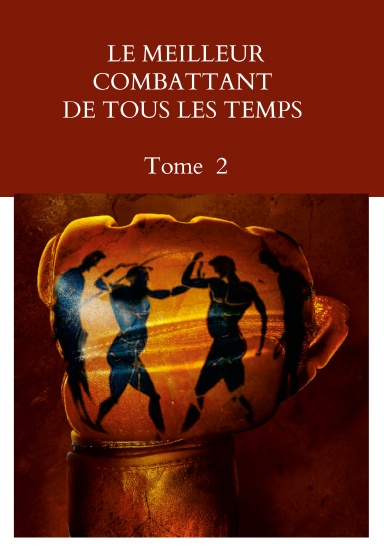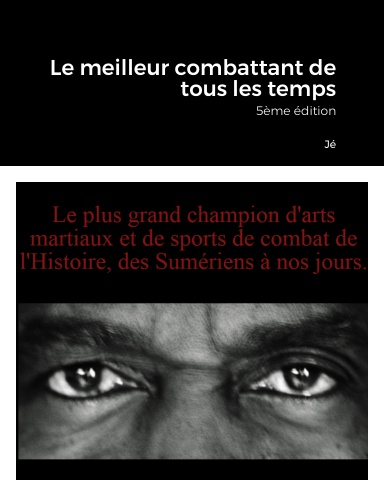lundi 10 mai 2010
Kushti (Kusti)
En Inde, le terme Kushti (ou Kusti) désigne la lutte traditionnelle indienne. Cependant, en y regardant de plus près, on découvre que ce terme est d'origine perse (iranienne).
Dans l'Antiquité, il s'agissait en fait d'un rituel mazdéiste et du vêtement porté à cette occasion; lequel est utilisé depuis des siècles (voire des millénaires) par les lutteurs traditionnels indiens. Ces lutteurs sont d'ailleurs des mystiques qui, à 99%, vénèrent le dieu Hanuman, et vivent en communautés masculines.
Autre preuve de l'origine iranienne de la lutte indienne, la façon de désigner les lutteurs : "pehlwani"; qui n'est pas sans rappeler le terme utilisé pour les champions de lutte traditionnelle turque "pehlivan" ou, pour les grands vainqueurs "baspehlivan"
(voir sur http://kirkpinar.net/2006/11/baspehlivan.html).
Enfin, pour couronner cette démonstration étymologique de l'origine iranienne de la lutte indienne, la façon dont on désigne les grands champions : "Rustam-e-Hindi" (mais aussi "Rustam-e-Paki" au Pakistan). Rappelons que Rustam (ou Rostam, dans sa traduction française) est le grand héros des épopées perses, l'équivalent de l'Hercule romain ou de l'Héraklès grec.
(voir http://le-meilleur-de-tous-les-temps.blogspot.com/2007/07/les-premires-civilisations.html)
Voici quelques-uns des grands champions à qui ce titre honorifique fut attribué (informations trouvées en vrac sur le site http://www.kabbadi.org/ avec un commentaire en anglais sur le Grand Gama, lutteur indien qui défraya la chronique dans les années 1910; voir http://le-meilleur-de-tous-les-temps.blogspot.com/2007/07/leurope-domine-le-monde.html) :
Wrestlers (Rustam e Hind)
Kikkar Singh
Gama Pahelwan (World Champion)
Imam Baksh Rustam-e-Hind
Pehlwan Sikander Singh (Alamgir Akhada)
Dara Singh K.D. Yadav (Olympics Bronze 1954)
Mehardin Kartar Singh
Parvinder Doomchedi
Suresh Kumar
Delhi Satewan
Delhi Rakesh Kumar
Indore Sanjay Kumar
Haryana Subhash Verma
Delhi Gurmukh Pehlwan
Patiala Surinder Singh
Amritsar Sukhchain
Patiala Palwinder Cheema (Olympian)
Kesar Pehlwan
Patiala Pehlwan
Rohi Ram
Sadli Sukhchain
Cheema Pooran Pehlwan
Jakhepal Pehlwan
Mehardin Joginder
Kakrala Amandeep
Sondhi Pehlwan
Banta Singh
Sateaanian Sikander Pehlwan
Alamgir Bai Ram Kishan
Alamgir Harvinder
Alamgir Sabar Pehlwan
Chandigarh Shamsher
Chandigarh Padarth Amritsar
I would too, from my knowledge, Kikar Singh was from two hundred years ago, he ripped a kikar tree from the ground to show his brothers killers that he could kick their butt but chose not to. He could kill a wild boar with a single blow. Gama aka the "Great Gama" aka "The lion of the Punjab" was from the 1900's to the 1930's. Around 1912 he went to London and beat the best in the world, but for the most part the world's wrestlers were scared to go against him and the famous american catch as catch can wrestlers fled from him eg Frank Gotch "World champ" of America. Famous Russian George Hackenshidmt also was afraid. His brother they say was a better all around wrestler while Gama was a lion in standing wrestling unstoppable while standing no on could stand more than a few minutes with him they'd get thrown easily.
Dans l'Antiquité, il s'agissait en fait d'un rituel mazdéiste et du vêtement porté à cette occasion; lequel est utilisé depuis des siècles (voire des millénaires) par les lutteurs traditionnels indiens. Ces lutteurs sont d'ailleurs des mystiques qui, à 99%, vénèrent le dieu Hanuman, et vivent en communautés masculines.
Autre preuve de l'origine iranienne de la lutte indienne, la façon de désigner les lutteurs : "pehlwani"; qui n'est pas sans rappeler le terme utilisé pour les champions de lutte traditionnelle turque "pehlivan" ou, pour les grands vainqueurs "baspehlivan"
(voir sur http://kirkpinar.net/2006/11/baspehlivan.html).
Enfin, pour couronner cette démonstration étymologique de l'origine iranienne de la lutte indienne, la façon dont on désigne les grands champions : "Rustam-e-Hindi" (mais aussi "Rustam-e-Paki" au Pakistan). Rappelons que Rustam (ou Rostam, dans sa traduction française) est le grand héros des épopées perses, l'équivalent de l'Hercule romain ou de l'Héraklès grec.
(voir http://le-meilleur-de-tous-les-temps.blogspot.com/2007/07/les-premires-civilisations.html)
Voici quelques-uns des grands champions à qui ce titre honorifique fut attribué (informations trouvées en vrac sur le site http://www.kabbadi.org/ avec un commentaire en anglais sur le Grand Gama, lutteur indien qui défraya la chronique dans les années 1910; voir http://le-meilleur-de-tous-les-temps.blogspot.com/2007/07/leurope-domine-le-monde.html) :
Wrestlers (Rustam e Hind)
Kikkar Singh
Gama Pahelwan (World Champion)
Imam Baksh Rustam-e-Hind
Pehlwan Sikander Singh (Alamgir Akhada)
Dara Singh K.D. Yadav (Olympics Bronze 1954)
Mehardin Kartar Singh
Parvinder Doomchedi
Suresh Kumar
Delhi Satewan
Delhi Rakesh Kumar
Indore Sanjay Kumar
Haryana Subhash Verma
Delhi Gurmukh Pehlwan
Patiala Surinder Singh
Amritsar Sukhchain
Patiala Palwinder Cheema (Olympian)
Kesar Pehlwan
Patiala Pehlwan
Rohi Ram
Sadli Sukhchain
Cheema Pooran Pehlwan
Jakhepal Pehlwan
Mehardin Joginder
Kakrala Amandeep
Sondhi Pehlwan
Banta Singh
Sateaanian Sikander Pehlwan
Alamgir Bai Ram Kishan
Alamgir Harvinder
Alamgir Sabar Pehlwan
Chandigarh Shamsher
Chandigarh Padarth Amritsar
I would too, from my knowledge, Kikar Singh was from two hundred years ago, he ripped a kikar tree from the ground to show his brothers killers that he could kick their butt but chose not to. He could kill a wild boar with a single blow. Gama aka the "Great Gama" aka "The lion of the Punjab" was from the 1900's to the 1930's. Around 1912 he went to London and beat the best in the world, but for the most part the world's wrestlers were scared to go against him and the famous american catch as catch can wrestlers fled from him eg Frank Gotch "World champ" of America. Famous Russian George Hackenshidmt also was afraid. His brother they say was a better all around wrestler while Gama was a lion in standing wrestling unstoppable while standing no on could stand more than a few minutes with him they'd get thrown easily.
Inscription à :
Publier les commentaires (Atom)





Aucun commentaire:
Enregistrer un commentaire